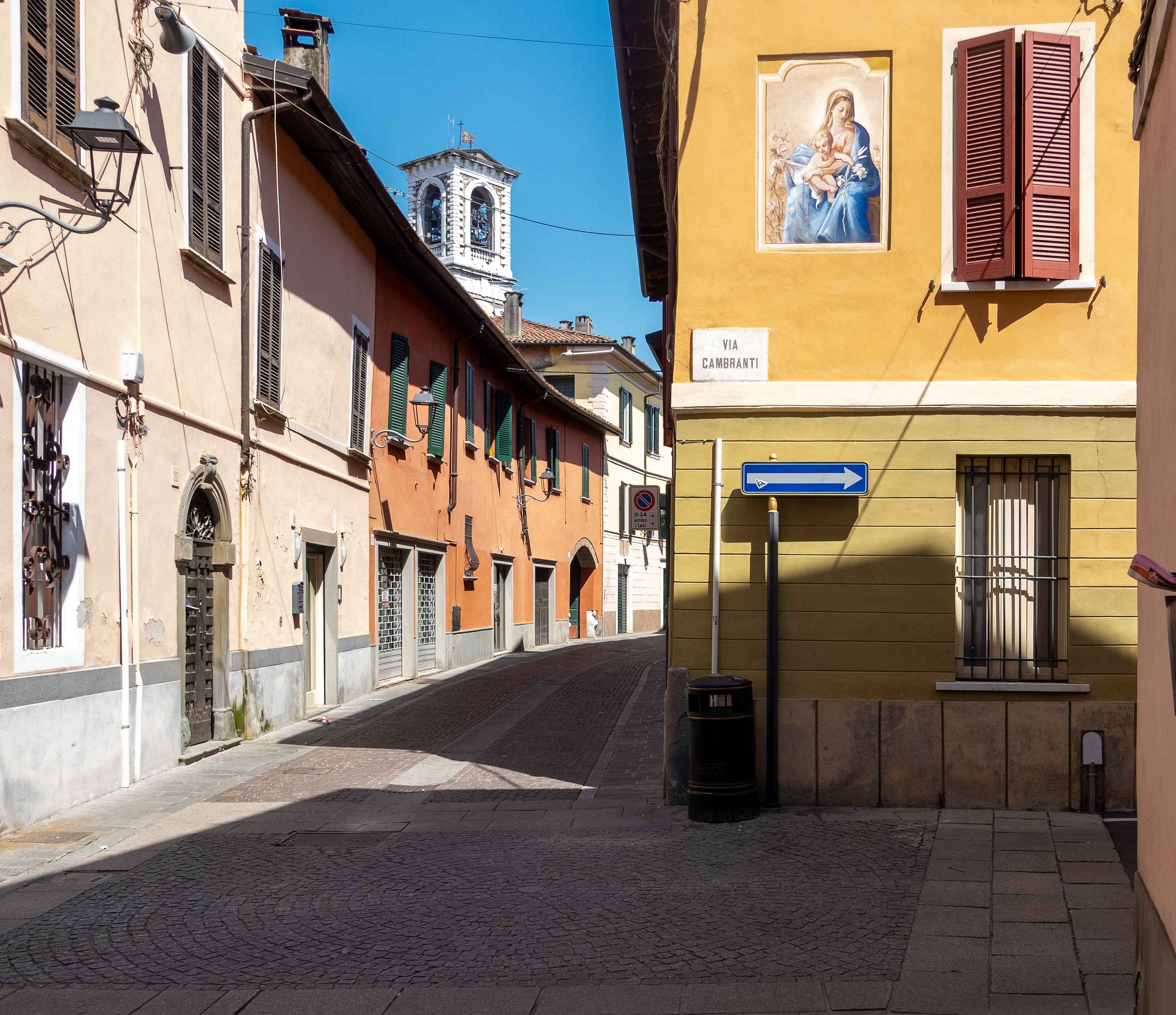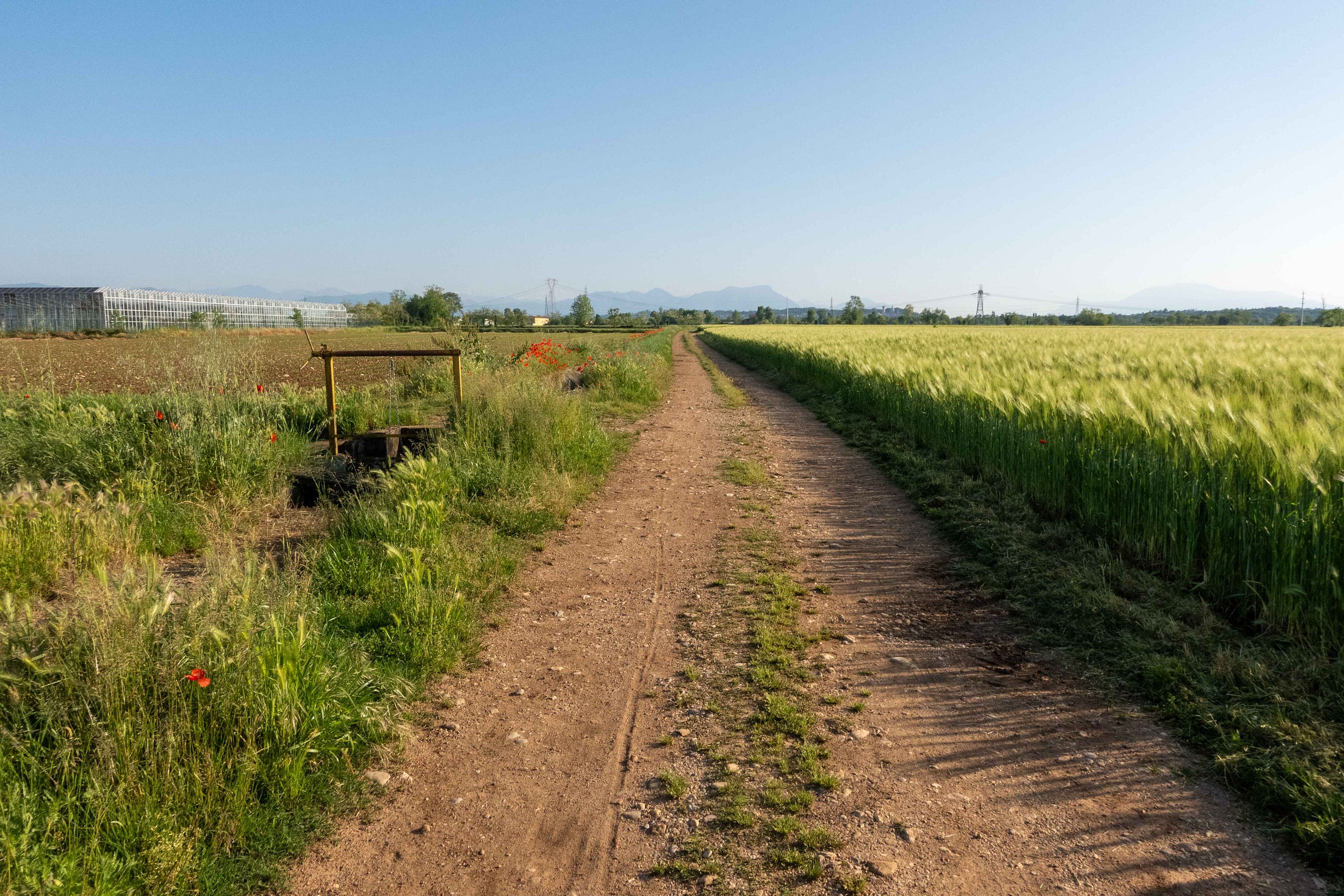A retreat to Chiari, and then pain. Lots of pain
A torrid sun, a hasty retreat to paradise, followed by pain
(This is my second piece on walking Lombardy. The first piece is on walking from Milan to Brescia.)
I was five miles outside of Brescia, hiking through a corn field towards Montichiari, when I knew I might be in trouble. Contrary to all the pre-trip weather reports not only wasn't there any rain, but there wasn't a single cloud in the sky.
There also was no shade to skirt under, no trees lining the dirt trail, since everything had been cleared for more corn and rice, so the sun was cooking not only the rows of fragile spring sprouts, but me as well.
I had started at 6 a.m., but that wasn't enough, because the sun had a power that mocked its latitude. This wasn't a Bangor, Montreal, Minneapolis, or Portland sun, but a super-charged skin-blistering Lombardy sun, the clear alpha of the forty-five degree north club1.
It wasn't all that bad though, because other than getting sunburned2, I was still in what I consider my small slice of heaven on earth.
The order and competence of the fields and their complex system of irrigation3 (levees, rogge, canals, spillways, siphons) that dates back to medieval times; the calming serenity from the mountain ranges on the horizon; the village towers that told me where I'd come from and where I was heading; the bespoke lonely shrines that seemed to come every two miles — they all made for some of the most rewarding and fulfilling hikes I’ve ever had.
Knowing I would find a caffè next to a piazza next to a divine Romanesque church in each town I passed through, made it all the more rewarding, and so I kept on with the plan, despite the night headaches and tender skin4.
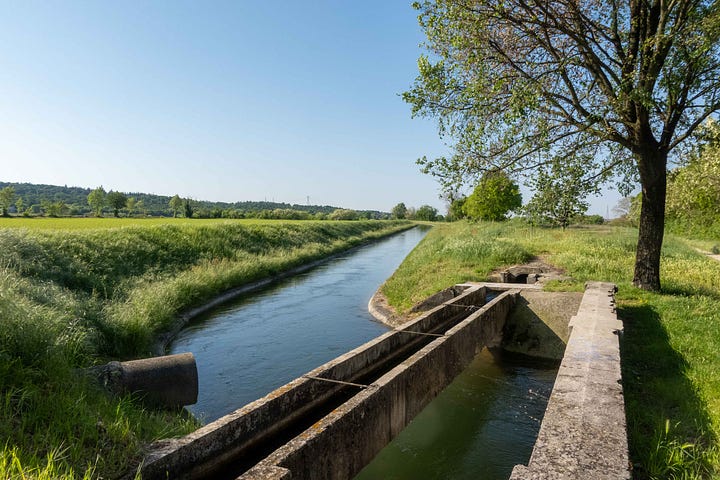
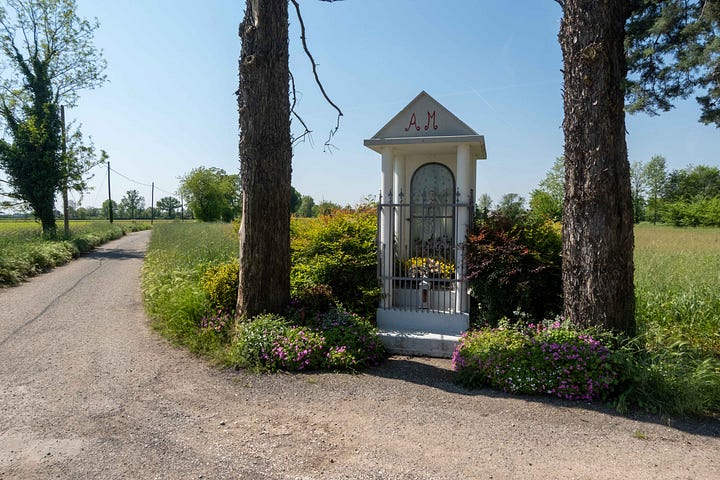
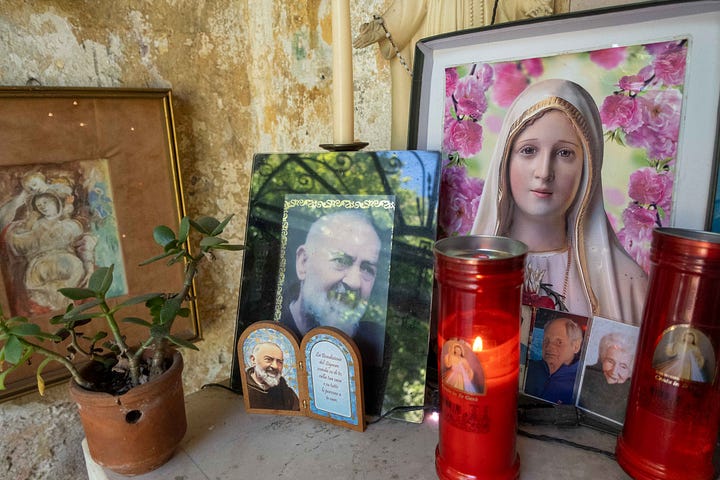
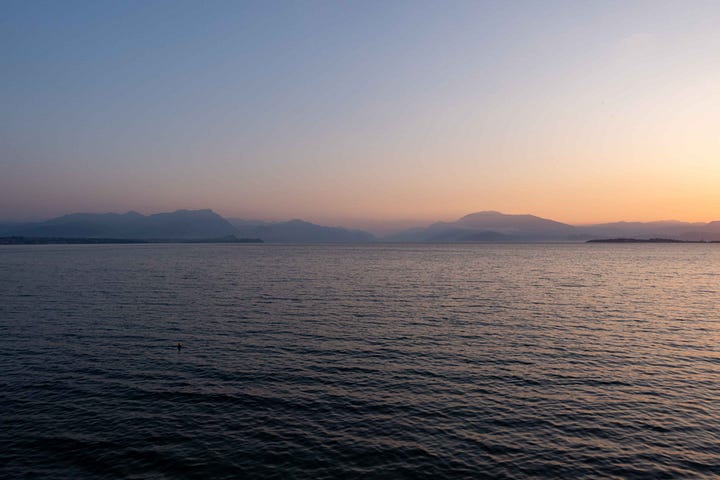
I kept on even when I reached the "scenic tourist gateway to Lago di Garda," Desenzano del Garda, which had scant Lombardy charm other than vestigial, although it did have an abundance of natural beauty, and was surprisingly serene, only swelling uncomfortably with fanny-packed tourists around midday, before disgorging them all back to wherever they had come from. Or to pack into restaurants, discos, and cafes far from my room on its placid shores.
Then it all unraveled. My plan5 was to walk along the lake shore to Sirmione, the "peninsular jewel of Lago di Garda," and then take a ferry to Lazise, spend the night, and then continue the twenty-five miles to Verona.
I love ferries, and one of my fondest recent memories is taking one from Fukuoka to Busan, so I was willing to put up with Sirmione’s reputation as being inundated, but I’d not realized how dull, dreary, and sunny the walk along the shore would be. I'd found Lombardy's equivalent of a Florida beachside strip, with ugly prefab buildings, overly engineered streets, and roads filled with aggressive and distracted drivers, all with precious little shade, though I'll admit the views and food were far better than anything in Florida.
I barely reached Sirmione, hot, burned, and anxious, before realizing it wouldn't offer any respite. It felt more like a Disney World's "Medieval Realm" than an actual thirteenth-century fortress set in a sublime location: Another example that no amount of authenticity can survive swarms of pleasure seekers.
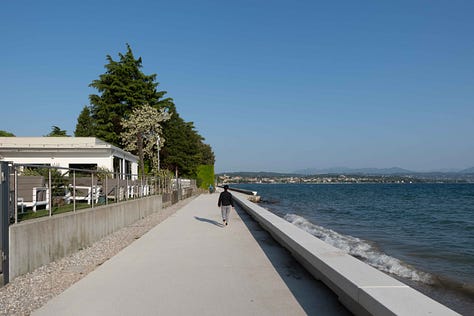
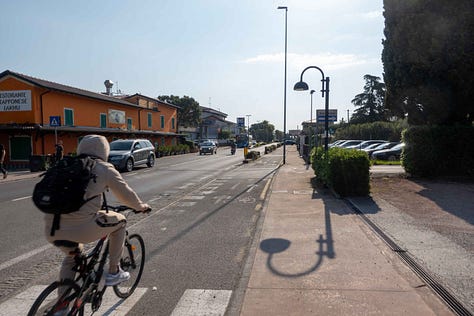
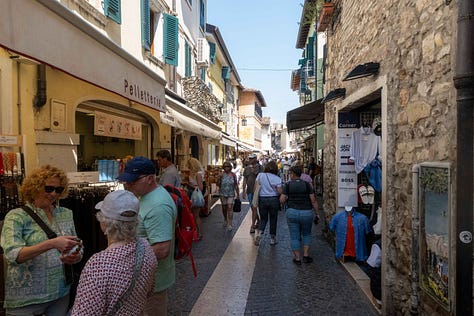
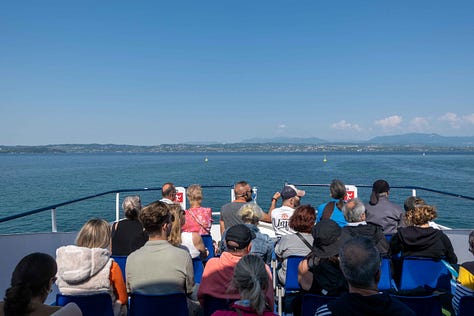
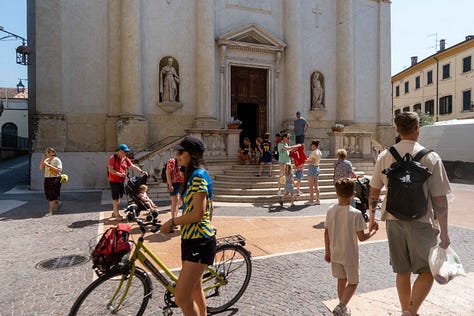

Lazise was little better, and had I done any prior research I would have been less surprised. It is Italy's thirteenth-most visited attraction, although less popular with Italians themselves. The lake surrounds the city on the west, but to the east, north, and south are seas of campers, RVs, trikes, and motorcycles, the majority with German, Dutch, and Scandinavian plates.
I'd discovered the Italian version of Myrtle Beach, complete with bikers from the north who had their own biker bars, which were notably similar to those in the US, as if being a biker transcends all national boundaries. Unlike Myrtle Beach though, Lazise comes with stunningly beautiful architecture, including the now ubiquitous (for Lombardy that is) Romanesque Cathedral, where despite the crowds, I managed to see it at its most peaceful and uplifting, during the following morning Mass.




